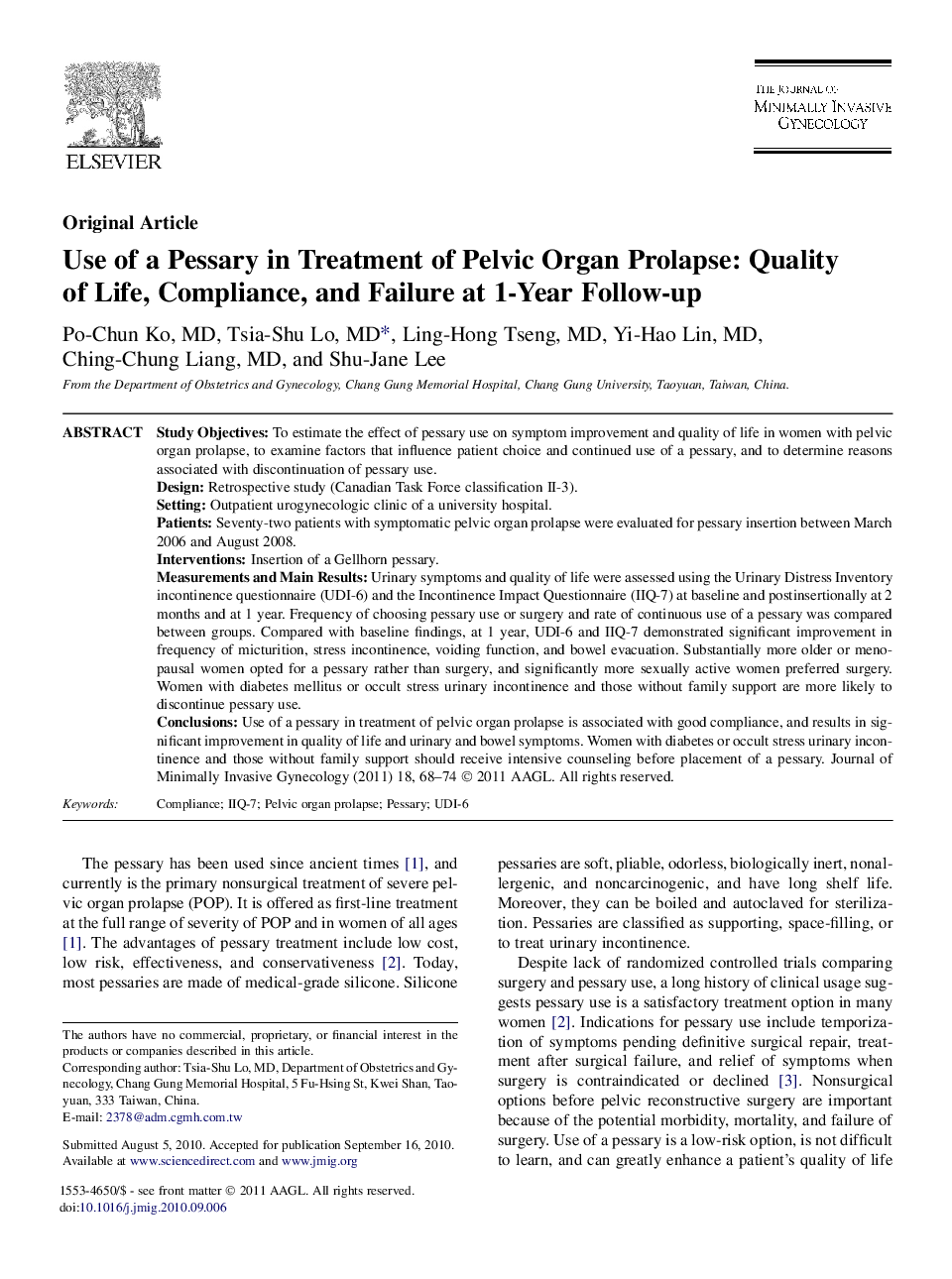| کد مقاله | کد نشریه | سال انتشار | مقاله انگلیسی | نسخه تمام متن |
|---|---|---|---|---|
| 3956755 | 1255332 | 2011 | 7 صفحه PDF | دانلود رایگان |

Study ObjectivesTo estimate the effect of pessary use on symptom improvement and quality of life in women with pelvic organ prolapse, to examine factors that influence patient choice and continued use of a pessary, and to determine reasons associated with discontinuation of pessary use.DesignRetrospective study (Canadian Task Force classification II-3).SettingOutpatient urogynecologic clinic of a university hospital.PatientsSeventy-two patients with symptomatic pelvic organ prolapse were evaluated for pessary insertion between March 2006 and August 2008.InterventionsInsertion of a Gellhorn pessary.Measurements and Main ResultsUrinary symptoms and quality of life were assessed using the Urinary Distress Inventory incontinence questionnaire (UDI-6) and the Incontinence Impact Questionnaire (IIQ-7) at baseline and postinsertionally at 2 months and at 1 year. Frequency of choosing pessary use or surgery and rate of continuous use of a pessary was compared between groups. Compared with baseline findings, at 1 year, UDI-6 and IIQ-7 demonstrated significant improvement in frequency of micturition, stress incontinence, voiding function, and bowel evacuation. Substantially more older or menopausal women opted for a pessary rather than surgery, and significantly more sexually active women preferred surgery. Women with diabetes mellitus or occult stress urinary incontinence and those without family support are more likely to discontinue pessary use.ConclusionsUse of a pessary in treatment of pelvic organ prolapse is associated with good compliance, and results in significant improvement in quality of life and urinary and bowel symptoms. Women with diabetes or occult stress urinary incontinence and those without family support should receive intensive counseling before placement of a pessary.
Journal: Journal of Minimally Invasive Gynecology - Volume 18, Issue 1, January–February 2011, Pages 68–74